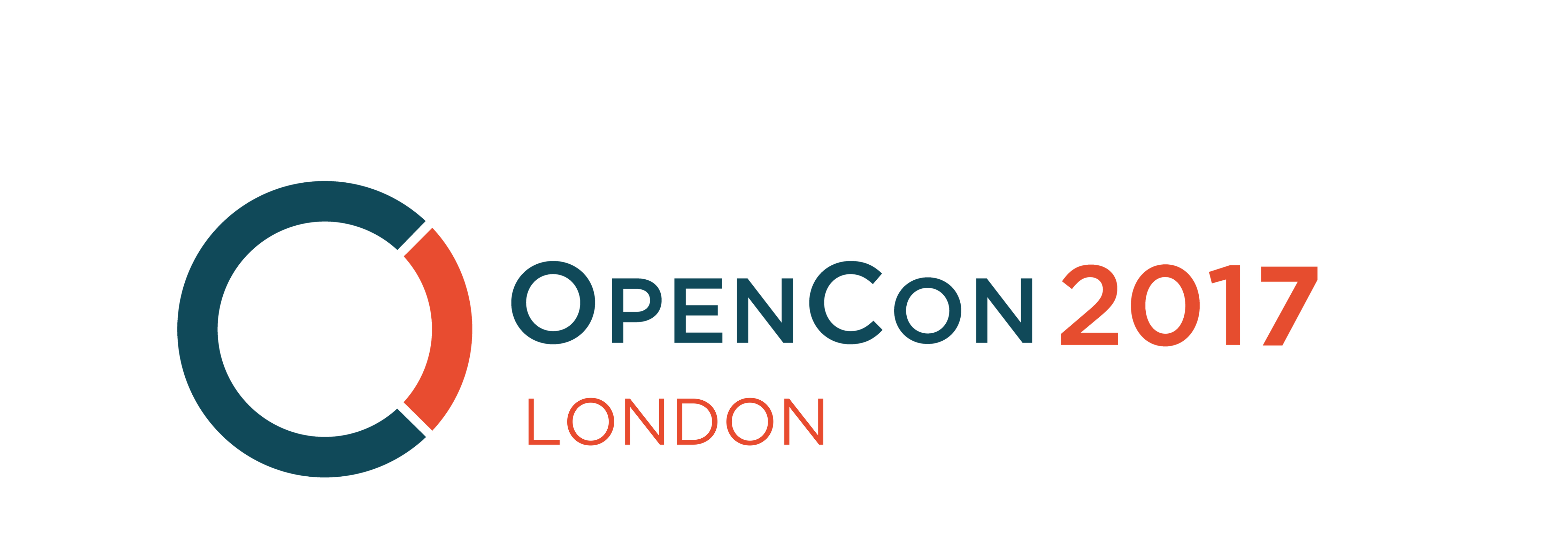Summary of OpenCon2017 London
Short description of the OpenCon2017 London

On the 21st September 2017, the OpenCon London satellite event took place at the offices of SpringerNature in London. OpenCon is the student and early career academic professional conference that focuses on Open Access, Open Education, and Open Data. It seeks to empower the next generation to advance openness in research and education. OpenCon satellite events are organised by those who are passionate about communicating the important messages of Open Information with the world, and are welcome to anyone interested in joining the conversation and connecting with a community of like-minded individuals. OpenUP (represented by project partner Know-Center) was involved in organizing the event, along with ScienceOpen and Digital Science.
The one day event was full of important lessons relevant to OpenUP, especially the Keynote “Public engagement - why” delivered by Sophie Scott, Professor of Neuroscience at UCL. Prof. Scott argued that public engagement can be beneficial for both researchers themselves itself and everyone else. Researchers benefit from it because it is inherently rewarding, they can meet new people, and they can expand their research horizons and networks. It makes them better at writing, communicating and speaking. Funders increasingly require public engagement, and it should be moral duty, because eventually a lot of research is funded from the public (government supports research). Everyone will gain from it, since it’s a powerful way of widening impact, and it increases transparency and potential audiences. Amongst the handy tips Prof Scott shared for how to improve your public speaking to wider audiences were to practice, try standup comedy, participate in science fairs, and make YouTube videos. Practical tips for writing were to focus on communicating to non-expert audiences, use social media (Twitter), blogging, and suggesting articles to professional bodies and newspapers. Generally, when you are invited to give a talk you should, know what you want them to know, have a message that should be something that they will take with them and there should not be more than three messages. One of the things that were stated was that there is no such thing as audience, there are audiences. Meaning that you should know to whom are you talking to, what they know and want to know, what they think you are going to talk about. YouTube is interesting medium because it is fun way to engage, especially with young people. Twitter was given as good example of social media for coming into dialogue with the public. One area for improvement cited by Prof Scott was crediting of public engagement activities in researcher assessments. Prof Scott said that she does such activities often in her spare time, and feels they are not valued highly enough. For example, within the UK’s Research Excellence Framework. Lisa Matthias of OpenAIRE sums up Prof. Scott’s story in her blog post reflecting on the event:
“At OpenCon London, Sophie Scott, Professor of Neuroscience at UCL, described her submission to the UK’s REF Impact Case Studies – examples demonstrating the impact of their research on wider society. Her case was based on a paper that had lead to a sequence of public engagement events – a popular TEDx talk, followed by a higher level TED talk, which was then used by Chris Anderson (owner of TED) for a book chapter on storytelling, and also lead to her appearance on BBC’s Horizon, an impressive achievement for anyone. However, this was not considered to have strong enough impact based on public engagement alone for the REF.“
The Keynote was preceded by an all-day hackathon which had two strands: (1) a reproducibility hack to attempt to reproduce the analysis and figures of a paper from the raw data, with the aim to test how reproducible papers are, identify what good and bad practices, and identify possible improvements, and (2) a do-a-thon for participants to work collaboratively on open science projects – here participants worked on expanding Open Knowledge Maps, an open source knowledge discovery tool (led by Peter Kraker) and on writing the open collaborative "Foundations for Open Science Strategy Development" document. A great write-up of the hackathon by Hack Leader Anna Krystalli is available here.
Following the Keynote, a panel of speakers including Al Hyndman (Figshare), Peter Kraker (Open Knowledge Maps) and Catriona MacCallum (Hindawi) presented their differing business models, as the lead-in to a discussion on business models in Open Science. All the companies aim to support OA and Open Science and have taken different routes to sustainability (public and private). The main question seemed to come down to one of trust - how to trust the business model, what happens if company policy changes its and doesn’t support OA any more. What will happen with researchers’ data and papers, how can he be ensured that he will still have control what happens with his papers, data, code? One interesting model was from Open Knowledge Maps. Because their business model is open, everybody can see it and even comment it on their web page. It is an open source software so community can use it and improve it.



